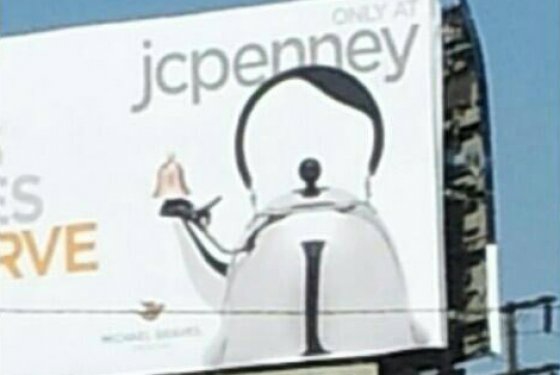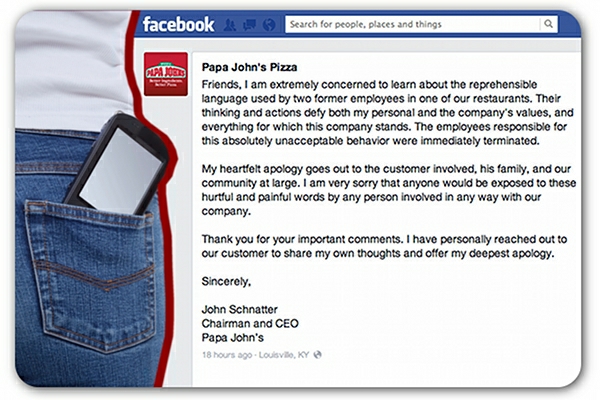Miss Utah's Illogical Interview Response
Good thing she's so beautiful. Top-five Miss USA contender Miss Utah badly flubbed a question about income inequality. NeNe Leakes (Desperate Housewives of Atlanta) asked the interview question:
"A recent report shows that in 40% of American families with children, women are the primary earners, yet they continue to earn less than men. What does this say about society?"
Download Miss Utah's Illogical Answer
Discussion Starters:
- What are the (many) logical flaws in Miss Utah's response?
- What organizational strategies would have helped her answer the question?
- What strategies for preparing for an oral presentation and handling questions might have helped the candidate?
HGTV's Flag Tablecloth Draws Fire
In anticipation of Fourth of July celebrations, HGTV suggested using an American flag as a tablecloth.
On its Facebook page, the network suggested "Classic Fourth of July Table Setting Ideas" including this tip:
"Drape a large American flag over the table as a bright and festive table runner. Use a nylon flag so spills can be easily wiped off and the flag can later be hung with pride on a flag pole."
Apparently, the network designers were unaware of "Flag Etiquette," according to the U.S. Government, which includes the following:
"The flag should not be used as a drapery, or for covering a speakers [sic] desk, draping a platform, or for any decoration in general."
As expected, backlash on HGTV's Facebook page came from across the nation:
- I am appalled that you would suggest using the flag that my brother was killed defending in Iraq as something to catch spills on a table at a cookout.
- No one dies for a table cloth.
HGTV issued this apology:
"HGTV Fans, regarding the recent article that appeared on our website...This was a regrettable use of our flag and it never should have happened. We sincerely apologize and have removed the post from our website. We want to assure our fans that HGTV is proud of the American flag and everything it symbolizes for our people."
Discussion Starters:
- What's your assessment of HGTV's decorating advice: was it an innocent mistake, or should the designers have known better?
- What's your view of the reaction? Are people too sensitive? Is this a desecration of the flag? Or something else?
- What's your view of HGTV's apology? What works well, and what could be improved?
- In the excerpt from the government website, I added "[sic]." What does this mean, and why did I add it?
George Takei's Ghost Writer Fesses Up
George Takei, 1960s Star Trek cast member, is highly popular on Facebook. But his posts have been written, at least in part, by someone paid $10 per joke. With 4.1 million likes, Takei's Facebook page is a mix of cartoons, jokes, and other lighthearted posts.
Rick Polito came clean in an email to Jim Romenesko's blog but seemed to have regretted the decision after a few days' rest:
"Polito tells Romenesko readers today: 'I wrote an apology to George and Brad and their guy said he'd pass it on. I just said that I'd been looking for any mention of my book I could get and that I hadn't meant to expose anything.
"He adds: 'I don't update his page. I've had no direct contact with George. I've sent him some memes, as have other comedian types and I was happy for the exposure.'"
In an email to Wired, Takei doesn't share his fans' concern:
"What is this hoo-ha about my FB posts? I have Brad, my husband, to help me and interns to assist. What is important is the reliability of my posts being there to greet my fans with a smile or a giggle every morning. That's how we keep on growing."
Discussion Starters:
- Compare this situation to that of Mark Davidson, whose tweet writer exposed him on his own Twitter feed. What are the similarities and differences?
- How do you assess this situation? Under what circumstances is it acceptable for someone to write social media posts on another's behalf?
Whole Foods Criticized for English-Only Policy
Two employees claim they were suspended for complaining about Whole Foods' policy that employees speak only English while at work. The New Mexico League of United Latin American Citizens and ProgressNow New Mexico are threatening boycotts of Whole Foods.
 On its website, the company posted this response-in both English and Spanish:
On its website, the company posted this response-in both English and Spanish:
Whole Foods Market® responds to AP story about Spanish speaking team members
Article is misleading; company celebrates and honors our diverse team members
AUSTIN, Texas (June 6, 2013) – At Whole Foods Market, we do not have "no foreign languages spoken" policies in any of our stores. Our policy is that the default language is English, for consistent communication, inclusion, and especially for safety and emergency situations. We want our team members to use their judgment about when it's appropriate to speak other languages. We are proud of our multilingual team members and try to work with customers in other languages whenever needed!
The facts are: two team members in New Mexico became upset when they believed they were told in a team meeting they could not speak Spanish at work. That was not what was communicated. They were suspended with pay due to rude and disrespectful behavior. Their suspension was due to their behavior alone, not for speaking Spanish.
Nevertheless, the store leadership launched a full investigation and seventeen team members who also attended the meeting confirmed that the language policy was discussed, and at no time were the two team members told they could not speak Spanish.
We will be looking at written guidelines across our multiple regions on this front to ensure clarity.
The statement could use some editing. For starters, "Spanish speaking team members" needs a hyphen for clarity. Also, isn't speaking Spanish a behavior? The sentence, "Their suspension was due to their behavior alone, not for speaking Spanish" is unclear, and "due to" is best reserved for owing money.
Discussion Starters:
- What's your view of English-only policies at work? Do you buy Whole Foods' justification?
- Assess the company's response. What works well, and what else could be improved?
Sloppy Charts
Business Insider writers seem to be enamored with unclear charts-and don't do a great job describing them. With the headline, "These Are The Charts You're Going To Be Seeing In Powerpoints And Mobile For The Next Year," the article shows 13 charts, none of which follow business writing principles.
The first one shown, about mobile data traffic, is pretty, but makes it difficult to distinguish the data and draw any meaningful conclusions except that things are going up (for which we probably don't need a chart).

A skeptic might ask the following:
- Is mobile service-provider Ericcson the most objective source for this data?
- What are the actual numbers for each year? This is impossible to see.
- What are the different data types referenced in the chart heading? Which is yellow, blue, etc.?
- What's an extabyte, anyway?
- How well can people distinguish aqua blue from green, and why are they next to each other? I'm guessing that people who are color blind can barely distinguish these line sections.
- Is the last year 201?
The article text is equally problematic. Note the errors:
Every year, Ericsson puts together a massive report on global mobile usuage trends.
The charts and data in this report then proliferates through Powerpoints and slide decks around the world.
So, get a jump start on everyone else in the industry and…
Discussion Starters:
- What other issues do you see with this chart?
- Review the 12 other charts. How they can be improved to meet business writing standards?
Study Shows Value of Internal Social Networks
A Kellogg School study found positive effects of an internal social networking system at a major credit card company.
 As more companies implement enterprise social media tools, Paul Leonardi, a professor of communication at Northwestern University, wanted to evaluate their usefulness. The credit card company was installing "A-Life," and Leonardi compared two groups, marketing and operations, to see the impact. The marketing group was given access to the system, while the operations group was not. Before the six-month period, employees were asked who within the organization knew what-an important question for knowledge management and for getting work done.
As more companies implement enterprise social media tools, Paul Leonardi, a professor of communication at Northwestern University, wanted to evaluate their usefulness. The credit card company was installing "A-Life," and Leonardi compared two groups, marketing and operations, to see the impact. The marketing group was given access to the system, while the operations group was not. Before the six-month period, employees were asked who within the organization knew what-an important question for knowledge management and for getting work done.
After using the site rather than email, the marketing group reported a 31% improvement to find information and a 71% improvement in finding people who knew those with needed information.
Perhaps most interesting is that younger employees were the most skeptical of the system, as a Kellogg article explains:
"...he found that use differed by age: younger employees across the company were generally more skeptical of the tool. 'So many young people use social media tools'-like Facebook and Twitter-' their lives daily,' and those tools are really for social, non-work-related communication, says Leonardi. This, he believes, made it harder for younger employees to embrace social technology in the workplace. 'They would say, "Oh, I don't want to be posting things my boss would see." … On the other hand, the senior employees didn't have that same concern. For them, the technology was another mode for communicating about work-related matters.'"
Discussion Starters:
- What, if any, social networking tools have you used at work? What do you see as the benefits and potential pitfalls?
- Are you surprised at the results about younger employees? Why or why not?
Taco Bell Employee Licks Shells
This is not a good week to work in corporate communication at Taco Bell. A photo posted on the company's Facebook page shows an employee licking a stack of taco shells.
The image is gut churning, but before we jump to any conclusions, we need to know whether these shells were sold or were expired and on their way to the trash bin. Regardless, Rob Poetsch, a Taco Bell representative submitted this statement:
"When we learned of the situation we immediately contacted this restaurant's leadership and although we believe it is a prank and the food was not served to customers, we are conducting a full scale investigation and will be taking swift action against those involved."
In another statement, the company led with, "Nothing is more important than the safety of our customers and team members, and we have strict food handling procedures and zero tolerance for any violations."
Discussion Starters:
- If you were Taco Bell's head of corporate communications, what would you do now? How about if you were the head of human resources? Marketing?
- The company seemed to have removed the photo from its Facebook page. Discuss this strategy: what are the advantages and disadvantages?
Cheerios' Commercial Featuring an Interracial Family Takes Some Hits
It's tough to escape backlash on the web these days. After months of controversy about the use of GMOs (genetically modified organisms) in the cereal, Cheerios produced a commercial featuring an interracial family. The feedback is mostly positive, but racist comments caused General Mills to cull its Facebook page.
How could such a cute, little girl cause so much controversy? Advocates applaud the company's example of biracial families as typical families. As one writer says,
"This commercial is a huge step for interracial families like mine who want to be seen in public together and maybe eat some heart-healthy snacks. But it also validates the existence of biracial and multiracial people. Often we're treated like exotic flowers, who should feel complimented when people say stuff to us like, 'All biracial women are so beautiful' or 'I would kill for your skin.' One of the hardest things about growing up the way I did is feeling like you need to choose one racial identity over another just to fit in. . . .
"So, this is just a stupid commercial about Cheerios but it means a lot to me. It shows interracial families and their children being normal and cute, not something to gawk at or to question. Hopefully this commercial will lead to even more positive representations of not just interracial families, but all kinds of non-traditional families."
But others find the commercial offensive for a variety of uninteresting reasons. Debate on Reddit has some calling posters bigots and-my favorite-subreddits.
Cheerios issued this brief statement to Gawker:
"Consumers have responded positively to our new Cheerios ad. At Cheerios, we know there are many kinds of families and we celebrate them all."
Discussion Starters:
- What's your view of the commercial? Do you find it offensive in some way?
- What's Cheerios' rationale for the ad? Am I too cynical to suspect that the brand is trying to deflect attention away from the GMO controversy?
The FTC Needs a Proofreader
The Federal Trade Commission, the government agency responsible for consumer protection, needs to protect its own reputation. An embarrassing automated email response is riddled with errors.
Posted on Jim Romenesko's blog, the email received its share of snarky comments, such as this one:
Discussion Starters:
- What errors do you see in the email?
- How do mistakes like this happen?
- Do you consider this more embarrassing because it's from a federal government agency? Or would it be equally embarrassing from a corporate office?
J.C. Penney Removes "Hitler Teapot" from Billboard
Does this teapot look like Hitler to you? It does to some people, and J.C. Penney responded by removing the image from a billboard in California.
J.C. Penney responded to several tweets, such as this one:
Despite the criticism-or perhaps because of it-the teapots sold out online but can be had for a mere $199.99 on Ebay. Or you can place a back order for just $40.

The teapot was designed by Michael Graves. Here are more of his J.C. Penney products. Do you see any other political figures, criminal master-minds, celebrities, or religious figures?
Discussion Starters:
- When should a company ignore social media reactions? Is this one of those situations?
- What could be the consequences of J.C. Penney's leaving the billboard as is? Do you think it would be worth the risk?
Papa John's Apologizes for Racial Slurs
A Papa John's delivery person left a racist voice mail, and the company has taken action.
Apparently, the driver dialed the customer's number by accident, leaving the customer to hear an incredibly insulting message intended only for the employee's coworker. (You can listen to the voice mail here, but I don't recommend it; a slur is repeated a ridiculous number of times.)
Keith, the Papa John's manager, said, "We were made aware of the video, and it's under investigation. We're sorry that it happened." He confirmed that the employees involved have been terminated.
In addition, CEO John Schnatter posted this message on the company's Facebook page:
Schnatter also replied to one of the many Facebook posts about the situation:
"I, too, am extremely appalled by these former employees' actions and sincerely appreciate it being brought to our attention. The thinking of these people is counter to mine and my company's values and we will not tolerate it. We immediately terminated those involved and will continue to educate all on our team. I personally have reached out to the customer to share my deepest apology.
"We thank you for allowing us to correct this horrible situation."
Discussion Starters:
- Asssess the company's response. What's your reaction to the termination decision and the two posts? What works well about the company's response and what, if anything, could be improved?
- What else, if anything, should Papa John's do in this situation?
Does Texting Hurt Grammar?
Finally, an infographic that incorporates cats. A study by Onlinecollege.org found that the more students text, the more their grammar may be affected. But some of the results are dubious.
The good news is that 86% of middle-schoolers believe that good writing skills are important in life, and only 11% think that texting negatively impacts their writing.
 But the survey sponsors seem concerned with the 50% who say that they don't use proper grammar or punctuation when writing texts or IMs. Also, the more teens receive "techspeak," the more they use it.
But the survey sponsors seem concerned with the 50% who say that they don't use proper grammar or punctuation when writing texts or IMs. Also, the more teens receive "techspeak," the more they use it.
So what? I'm not sure we can reasonably conclude, as the sponsors have, that texting hurts grammar.
Discussion Starters:
- Review the full infographic. Do you draw the same conclusions as the study sponsors do?
- Look at the graphics representing 50, 11, and 86%. What issues do you notice?
- How, if at all, do you think texting and IM have affected your use of proper grammar and punctuation?
TGI Fridays Accused of Using Cheap Alcohol
First Anheuser-Busch is accused of watering down its beer, and now this? Restaurant chain TGI Fridays may be replacing its premium alcohols with less expensive versions.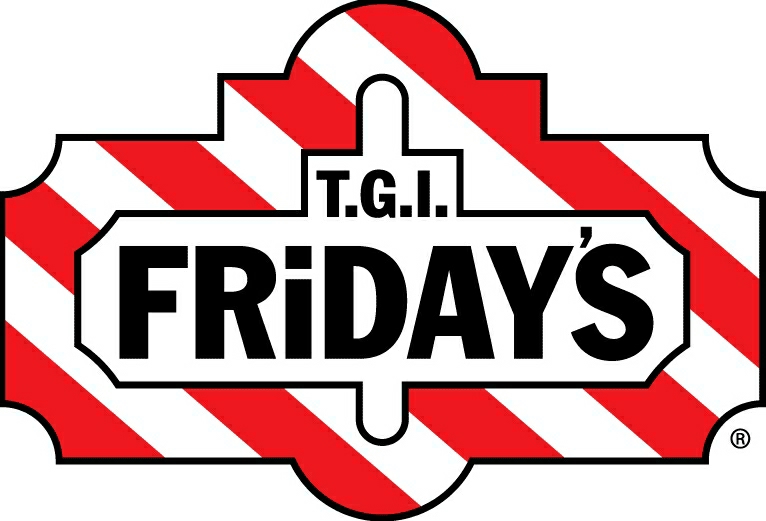
"Operation Swill," a year-long investigation, relied on customer complaints, informants, and alcohol-testing technology to cite 29 New Jersey bars. Although Fridays is the only chain with multiple locations in question, several other restaurants, including the following, are part of the investigation:
- Applebee's, Kearny
- Bell's Tavern, Lambertville
- Blackthorn Restaurant, Parsippany
- The Brick House, Wyckoff
- Brunswick Grove, East Brunswick
- Café 34, Matawan
- Cucina Calandara, Fairfield
- Graziano's Ristorante, Chesilhurst
- Italian Affair, Glassboro
- Murray's, Dover
- Railroad Café, East Rutherford
- Ruby Tuesday, Bridgewater
- Sona Thirteen, Morristown
- Sunset Tavern, Burlington
- Villari's Lakeside, Gloucester Township
- Yesterday's Marmora
A spokesperson from Fridays responded to the claims:
"TGI Fridays was just made aware of this issue and is working closely with the franchisee and owner of the cited locations to review and investigate these serious allegations. We have one of the most extensive bar and beverage programs in the industry, which sets a very high standard in the quality and service of our beverages."
Other restaurants denied the charges. Brian Hertenstein, general manager of Blackthorn Irish Pub in Parsippany, said, "It's not true, and there were never any complaints from patrons. I'm confident that it'll come back, and it'll be proven we were pouring what's on the label."
Discussion Starters:
- Does this news surprise you? What are the implications for restaurants in other states?
- How do you assess Fridays' and Hertenstein's responses? Which works best and why?
Exxon Refuses to Add Sexual Orientation to Anti-Discrimination Policy
 Although 88% of U.S. Fortune 500 companies ban discrimination on the basis of sexual orientation in the workplace, Exxon Mobil is not one of them. This is not a required federal policy but one that most large employers have added to their anti-discrimination policies. For the 14th year in a row, however, Exxon Mobil has denied a shareholder proposal to do so. The company has, of course, included such policies and provided same-sex benefits in countries where it's required, but the restriction in the United States is intentional-and has raised more than a few eyebrows.
Although 88% of U.S. Fortune 500 companies ban discrimination on the basis of sexual orientation in the workplace, Exxon Mobil is not one of them. This is not a required federal policy but one that most large employers have added to their anti-discrimination policies. For the 14th year in a row, however, Exxon Mobil has denied a shareholder proposal to do so. The company has, of course, included such policies and provided same-sex benefits in countries where it's required, but the restriction in the United States is intentional-and has raised more than a few eyebrows.
The move is surprising, particularly considering the increasing national acceptance of same-sex marriage; Don't Ask, Don't Tell laws for the military; and, this week, the Boy Scout's dismissal of a ban on gay scouts.
The company's decision may hurt business and their recruiting efforts. When the company's new head of human resources met with a group recently and asked, "What's your opinion of Exxon Mobil?" one representative said, "Every single person said the equivalent of, 'I'd walk 20 miles in a blizzard to find another gas station if I'd run out of gas. We'd never spend a dime at Exxon Mobil.'" Also, Exxon Mobil may be at a disadvantage when hiring talent. Would a gay or lesbian work for a company with this history?
The company's position is that a policy against all forms of discrimination already exists, and sexual orientation is mentioned on the web site. But, for many people, this is not enough.
Discussion Starters:
- Exxon Mobil says this is a board of directors decision. What do you think are the deliberations of the board? What are the considerations for and against including sexual orientation, specifically, in an anti-discrimination policy?
- How, if at all, does this news affect your view of Exxon Mobil? Does it affect your buying decisions?
McDonald's CEO Answers Questions About "Predatory Marketing"
McDonald's CEO Don Thompson addressed tough questions from stakeholders at the annual meeting, among them a nine-year-old girl.
Although the company has expanded its menu to offer more healthy items, members of an advocacy group at the meeting said it's not enough. At particular issue is the company's strategy of marketing directly to children through products such as Happy Meals. McDonald's has shrunk the size of fries in the meals and added apples, but the company has a long way to go, according to critics at the meeting. One request is for McDonald's to stop opening stores in hospitals.
As the girl said to Thompson, "It would be nice if you stopped trying to trick kids into wanting to eat your food all the time." In response, Thompson said, "We sell a lot of fruits and veggies and are trying to sell even more."
 During another exchange, Thompson was asked whether McDonald's targets African Americans, and he responded, "This one's kind of close to home. We do not have not, will not try to target people of color." Thompson is an African American.
During another exchange, Thompson was asked whether McDonald's targets African Americans, and he responded, "This one's kind of close to home. We do not have not, will not try to target people of color." Thompson is an African American.
Thompson's other points include the following:
- "We're not marketing to schools. We don't do that."
- "We are not the cause of obesity. We are not marketing unjustly to kids. Ronald is not a bad guy. ... He's about fun, and I'd encourage you to let your kids have some fun, too."
Discussion Starters:
- Read McDonald's annual report. What messages about nutrition do you find? How could the company do a better job of communicating its points?
- How do you assess Thompson's responses to the questions? How did he do?
"Socially Devoted" Brands on Twitter
Which brands are most responsive to customers on Twitter? Socialbakers released its view of the top five companies.
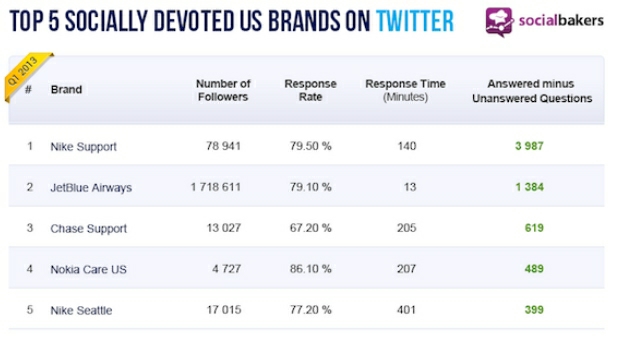
Although Nike answered a higher percentage of questions, JetBlue clearly is leading in response time, with an impressive 13 minutes. With so many more followers, it may not be possible for the company to beat Nike's rate.
Socialbakers also looked at the most engaged industries on Twitter, again using percentage of questions answered as the metric.
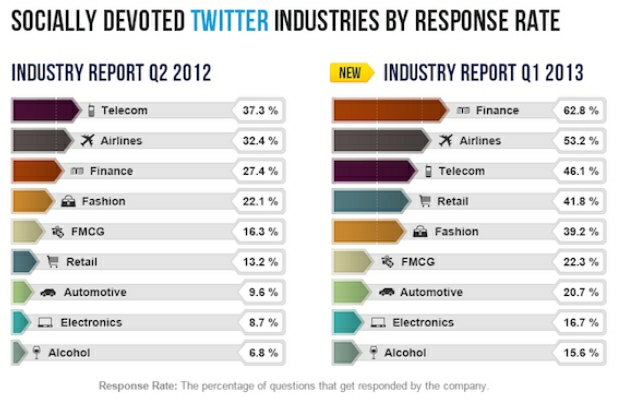
Although an imperfect measure, response rate is better than looking at the number of followers, which had been the prevailing metric of engagement for some time. At least with this data, human intervention is considered.
Discussion Starters:
- What, if anything, surprises you about the companies' and industries' level of "social devotion"?
- I say that response rate is an imperfect measure. Why do you think this is the case?
- What other metrics could be used to determine companies' success on Twitter?
A Personal Touch: Hotel Wake-Up Calls
 Automated wake-up calls at hotels have become the norm, but now some
brands want to differentiate themselves with a more personal touch. According to a USA Today article, the following examples show this move to personalization:
Automated wake-up calls at hotels have become the norm, but now some
brands want to differentiate themselves with a more personal touch. According to a USA Today article, the following examples show this move to personalization:
- At the Westin Resort and Casino, Aruba, once you respond to the first telephone wake-up call, an employee goes to your room and knocks on your door to make sure you actually get up.
- At Las Ventanas al Paraiso, A Rosewood Resort in Los Cabos, a butler shows up at your room to wake you up with complimentary tea, coffee and breakfast breads.
- At the Mandarin Oriental and The Four Seasons, a person rather than an automated system will call to wake you up. If you don't answer, you'll get a wake-up knock.
- You don't want to oversleep at The Adolphus in Dallas. If you miss your wake-up call three times, a security guard will show up at your door.
Although most people have Smartphones, according to one study, 53% of guests still want a hotel wake-up call.
Discussion Starters:
- What's your preferred method for alarms at hotels? What value do you see in a hotel's personalized wake-up call?
- What are the potential downsides of the hotels' approaches, listed above?
Apple Responds to Tax Criticism
Apple CEO Tim Cook is using his persuasive communication skills to address the company's avoidance of billions in taxes.
Cook appeared on Capital Hill and received a surprising number of compliments from the nation's lawmakers. Committee Chairman Senator Carl Levin, for example, said, "We love the iPhone and the iPad." Libertarian Ron Paul also defended the company: "I'm offended by the spectacle of dragging in Apple executives. What we need to do is apologize to Apple and compliment them for the job creation they're doing."
Still, the panel accused Apple of creating offshore "ghost companies" to avoid paying taxes. Apple shifts as much as $100 billion to these entities, saving $7 billion in taxes in 2011, according to one estimate.
Rather then deny the accusations, Cook blamed the outdated tax system: "Unfortunately, the tax code has not kept up with the digital age." By deflecting attention away from Apple and towards loop holes that should be closed, Cook effectively "disarmed" (to use The New York Times' word) the Senate committee.
Of course, Apple isn't the only company avoiding taxes. According to one study cited by Senator Levin, 30 of the country's largest multinationals "paid nothing in federal income taxes over a recent three-year period. Zero."
Discussion Starters:
- Watch Tim Cook's opening statement in the Senate hearing. What are his strongest and weakest arguments?
- Watch the rest of the Senate hearing. Which questions are most and least effective?
- How does Cook use delivery skills to persuade the committee?
Another Book About Gender Differences at Work
 Do we need another book about gender differences at work? Authors Barbara Annis and John Gray think we do. "Work with Me" promises to reveals the "8 blind spots between men and women in business." Gray is also the author of bestseller "Men Are from Mars, Women Are from Venus."
Do we need another book about gender differences at work? Authors Barbara Annis and John Gray think we do. "Work with Me" promises to reveals the "8 blind spots between men and women in business." Gray is also the author of bestseller "Men Are from Mars, Women Are from Venus."
Granted, I haven't read the book, but a Wall Street Journal interview with the authors made me roll my eyes like a teenager. Here's an excerpt, with Annis resorting to the old sports metaphor issue at work:
WSJ: How can men and women bridge these differences?
Barbara Annis: There's equal learning that has to happen on both sides. I worked with a firm where a high-level woman was feeling alienated partly because her boss always talked in hockey metaphors and mostly left her alone. His intention was to value her in his own approach. But she misinterpreted that. He saw she might want him to step into her office and see how she was doing, and have conversations that bond, not just about hockey. And she had to understand that he had the best of intentions for her. This is about knowing you have blind spots and turning your head to see more clearly.
Gee, that's original. Have we not progressed past the 1980s? I think we can find better ways to increase understanding. We could start by not exaggerating and generalizing differences, and we could use solid research instead of stereotypical, one-off examples.
The interview reminds me of generational differences at work that are often overstated for a good headline-or another bestseller.
Discussion Starters:
- What's your experience with gender differences at work? In what ways are they valid, and in what ways might they be overstated?
- What's your view the interview with the authors?
This Tweet Brought to You by Dos Equis
To promote its "Legend of You" app, Dos Equis hired a comedian to tweet.
When Michael Ian Black ("The State" and "Ed") tweeted that the new app turned him into "a Most Interesting Person," his 1.9 million followers knew it was a paid advertisement. Black's other tweets are funny (depending on your sense of humor).
The backlash was harsh, with one tweeter saying, "I wish you had died in 9/11" and another criticizing Black for using language that an unpaid intern probably wrote. Black responded to some tweets, such as this one:
You have to admire Black's honesty, but I wonder how his employer feels about it.
Discussion Starters:
- What advice would you give to companies considering paying for tweets? Should they not do this at all, or can safeguards be put in place?
- If you were the marketing manager for Dos Equis, would you hire Black again to promote your products? He did get a good discussion going...














